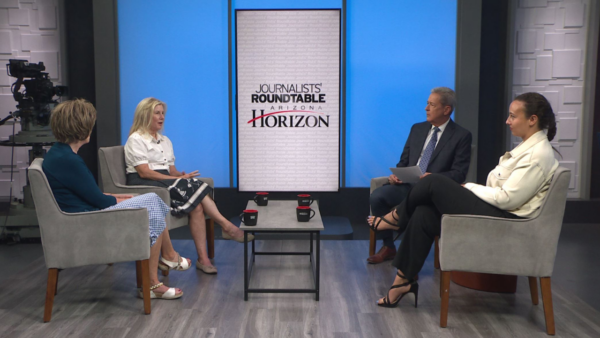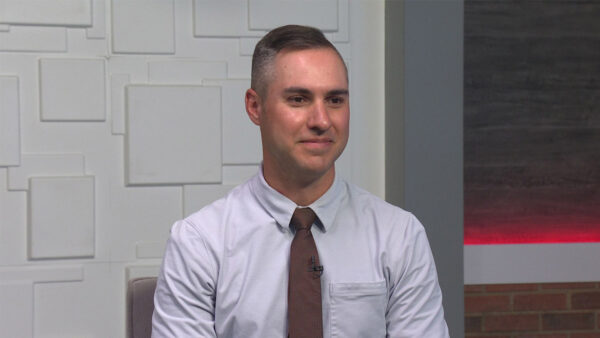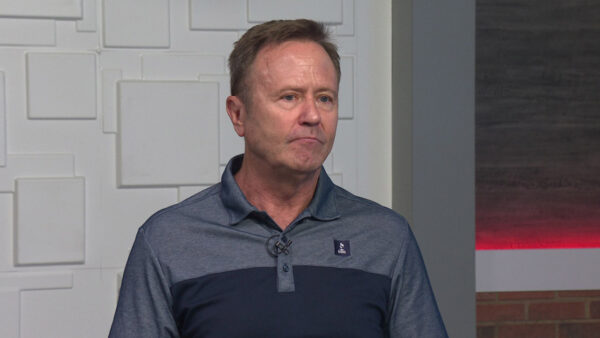Students in ASU’s W.P. Carey School of Business were part an experiment designed to test the viability of tablet computers as a substitute for books and other printed materials. Professor Beth Walker, associate dean for the W.P. Carey MBA, explains what the school learned from the trials.
Ted Simons: ASU business students were recently part after trial to see if iPads are ready to replace books and other print the materials in the classroom. Earlier I spoke with Professor Beth Walker, associate dean for the W.P. Carey MBA. Thanks for joining us tonight on "Horizon."
Beth Walker: Thank you for having me.
Ted Simons: Why did the business school take a look at iPads in the classroom?
Beth Walker: Well we've been looking at technology in the classroom for several years. We even have a standing committee of students and faculty and staff that look at this. So recently this year our course pack provider knowing that we are a very innovative program, and that we look at technology in the classroom identified the W.P. Carey School of Business MBA program as one of the sites for a pilot test for iPads, to see how students use iPads to interact with course materials.
Ted Simons: And so how many -- let's talk about how many classes, how many students, how long was the test?
Beth Walker: Well, we did actually two pilot tests. The first was in August, with a management class, and the second was -- began in November, with the supply team management class. And we were looking at classes that were -- had students about 30 students in each classroom, we were actually provided these iPads for free, so we were looking to identify classes of that side with faculty who were willing to give this a shot.
Ted Simons: Faculty willing to give it the shot, kids, students have to be willing too. You see resistance at first?
Beth Walker: Well, it was a very interesting trial. Our first trial in August, we looked both at course packs, digital course packs as well as E textbooks, and we learned a lot from the trial. So the course pack trial went quite well, but for the textbook, the students did -- there was resistance to the E-texts.
Ted Simons: Why do you think that was?
Beth Walker: Well, in order to access the E-textbooks, students had to be online. And that was a problem for a lot of students.
Ted Simons: Really?
Beth Walker: Yes. So that's sort of the state of where we are with E-textbooks. So that was a bit inconvenient, though there's wireless everywhere these days, still it wasn't exceedingly convenient.
Ted Simons: But you were able to use spreadsheets and other presentation material like this in the business classes?
Beth Walker: Oh definitely. So students could also -- documents, spreadsheets, all that other functionality provided by the iPad as well as using this as a device to download their course packs and course packs are supplementary materials that accompany textbooks, so they include articles in case studies, so they're very important part of the MBA experience. So that's what we were also looking at, instead of providing students with that big thick stack of paper, we provided them with this iPad where these course packs were provided digitally essentially.
Ted Simons: Now, as far as getting feedback, how often was the feedback offered, what kind of feedback was offered?
Beth Walker: Well, students met with our I.T. team, and we have a wonderful technology team, every two weeks to provide feedback. And we were providing feedback in turn to the course pack provider so they could see where our students were having trouble. And based on the feedback that we provided, the course pack provider developed a new application for the iPad so that students could easily access the course materials in the PDF files that were included were extremely interactive, very functional, and the students really appreciated that new application.
Ted Simons: It's interesting the new app, however, we are talking iPads here, flash is still a problem, isn't it?
Beth Walker: It is, for the iPad, it absolutely is. So in this case the PDF files that the course pack provider developed were not flash dependent. However, students could highlight material, they could write notes on their course pack material, they can download their notes and send it to other -- to themselves to other students, etcetera, so the PDF files the course pack provider developed were very interactive.
Ted Simons: And talk now, explain this to me, because I know some of these E-textbooks actually have expiration dates. How does that work? And how does that affect the test?
Beth Walker: Well, right now a lot of publishers do have expiration dates on their E-textbooks, so they're available to students for about 180 days. And then they expire, and students no longer have access. So that can be a problem. Certainly for students who want to cope their textbooks and use them as a reference, and that's something that we encourage, so knowing that there's expiration dates connected with these E-texts we not only provided the students in the pilots with the iPad so they could have digital access to their text and to their course packs, but also we provided hard copies of both their books and their course packs if they'd like that.
Ted Simons: So I can see the idea behind a test being instead of the kids looking around goodness knows how many books, carry your iPad, everything is on there. How close to reality is that after what I have seen with this test?
Beth Walker: Well you know, the possibility is really tremendous. So if you can picture students carrying around a device, a tablet like an iPad, versus carrying around a semester's worth of textbooks, plus course packs, the convenience factor is huge. What's happening right now in the publishing industry is a course pack providers are working together-to-with publishers to develop more digital materials that are very friendly for students. So hopefully within a year or two perhaps we might see textbooks that aren't going to have expiration dates or perhaps students can essentially rent to own if you will. But we haven't yet seen that. But this is in the works. As you know, things just emerge and change in this -- in the technology arena so quickly, we're excited about the future.
Ted Simons: So for now iPad's more of a supplement than an replacement.
Beth Walker: Absolutely. iPads are definitely a supplement, and we're looking at them right now mainly as something that can carry course packs and textbooks. We like their podcast functionality, you can use them to Skype. We look forward to different ways we can use an iPad, however, they don't have the same functionality of a laptop. So right now they're really supplementary.
Ted Simons: All right. Good information. Thank you so much for joining us, we appreciate it.
Beth Walker: Thank you, Ted.
Beth Walker:associate dean, W.P. Carey MBA;























